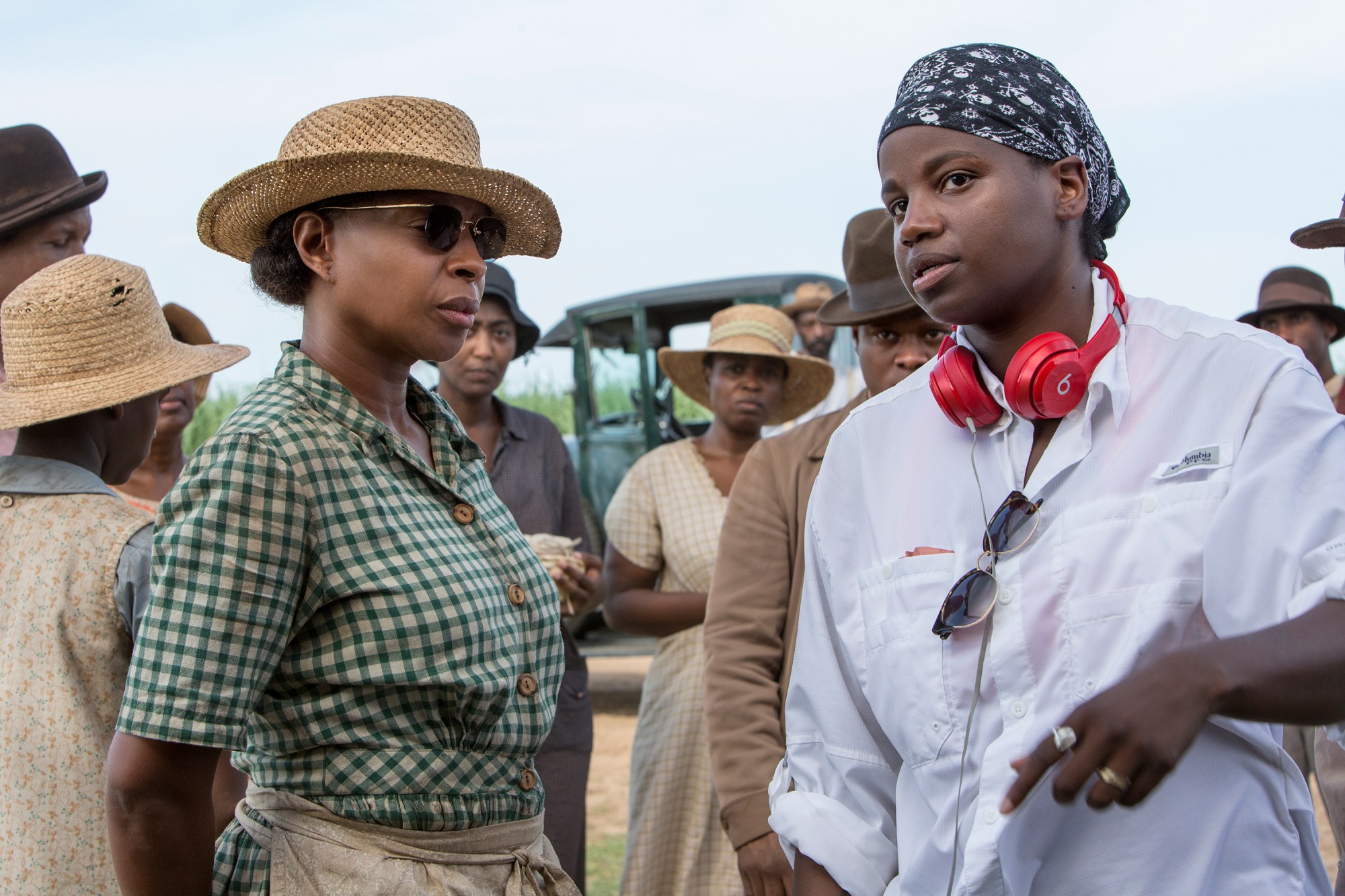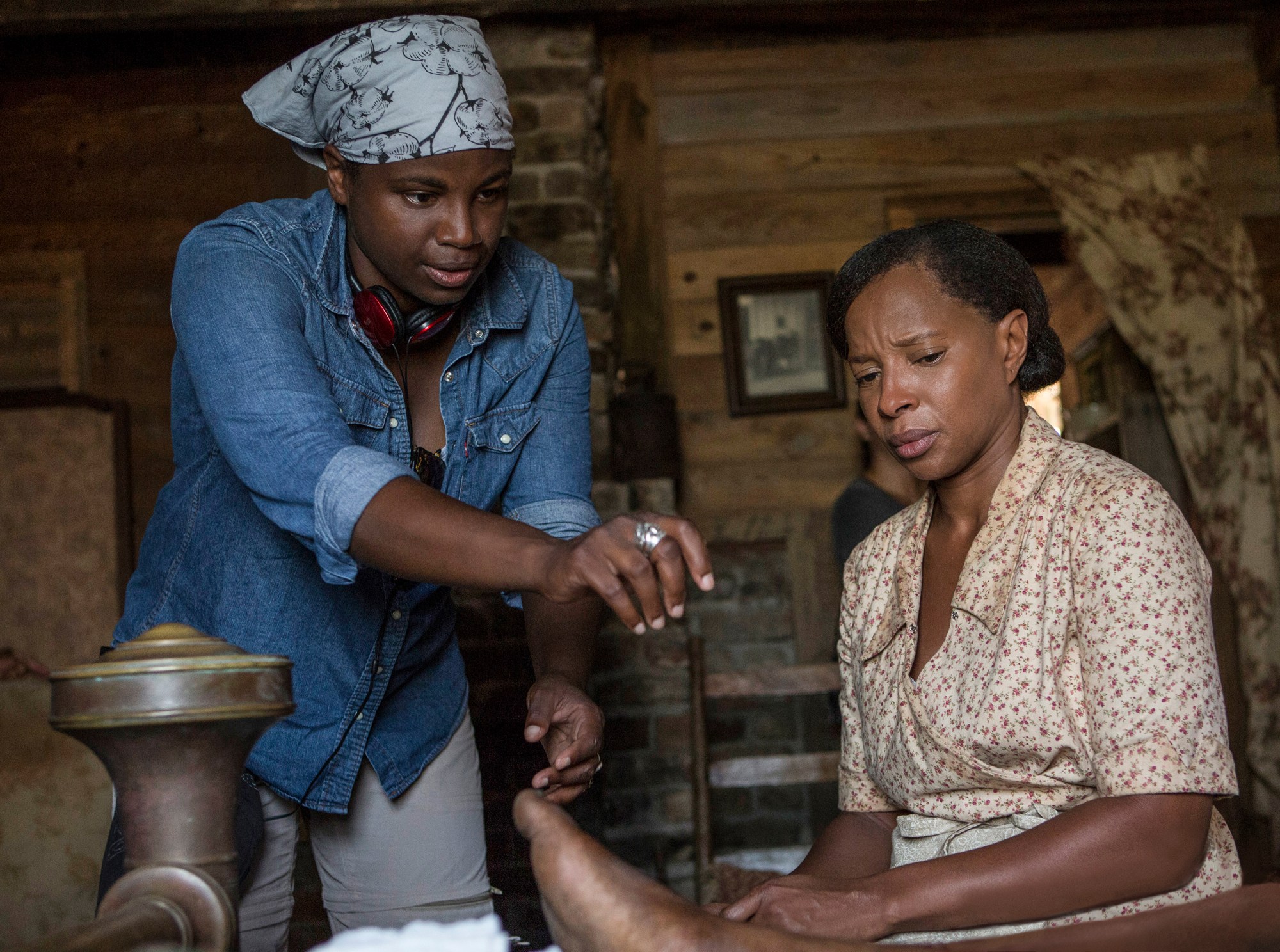As a movie loving kid in the 80s, Dee Rees would go to video stores and beg to take home the film posters once they’d finished with them. Her dad was a police officer, and would take her to the cinema to see double bills with his boys-in-blue discount. Her mum was a scientist who would bring home endless piles of new releases on VHS, and Dee herself would spend hours recording films off the TV on the family VCR.
It might seem like a Spielbergian intro to the life story of an acclaimed filmmaker — one who this year may be behind Netflix’s first real bite at the Oscars, and who might do some glass ceiling shattering of her own as a gay, African-American woman in the director’s chair.
But Dee’s narrative took a different turn. The 80s was also the time of Reaganomics and business schools. A straight-A student, she opted for an MBA rather than film school, the latter not on the table for a young black girl from Nashville, Tennessee. She ended up working as a marketing executive for pharmaceutical companies, selling wart removers, bunion pads and panty liners. “Can you imagine?” Dee laughs. “Who was that person?”
It is difficult to square the marketer in regulation corporate attire of navy skirt and blazer with the Dee Rees that i-D meets in London. Softly but intensely spoken, dressed in a casual suit and a majestic, copper-tinged afro. She looks like a hip Manhattan filmmaker — except of course she’s had to create that for herself, since there’s not exactly many in the film industry who have forged a path like she has.

Dee arrived on the film scene in 2011 with the semi-autobiographical Pariah, which broke new ground for its depiction of what it’s like being young, lesbian and black. This year, she may well change what a Best Director Oscar winner looks like. Her third film, Mudbound, is a starry Netflix period drama, which, since its debut at Sundance in January, has built a steady awards season buzz. It could see her as the first black female director to vie for the top award.
Mudbound is about the intertwining fates of two families — one black, one white — in WW2-era Deep South. The McAllans are white and a cut above, and it’s on their land that a black family, the Jacksons, work as sharecroppers. The McAllans have moved from the civility of Memphis, and are struggling with their harsh rural landscape. The Jacksons want more for themselves in life, but are thwarted by the brutal realities of Jim Crow South. This social hierarchy is tested when a son from each family comes home from the war and they form a friendship across race and class lines.
One of the most striking aspects of Mudbound is how characters choose how to operate in the system of racial hierarchy.
It hardly needs stating but Dee’s film is no mere period piece. It’s about whiteness as a currency, says Dee, in the shadow of Charlottesville, #taketheknee and a President talks about black bodies in terms of white ownership. Dee says, of the political reality the film drops into, that “the reason why people are so upset, and why Trump has risen, is that you have a group of white people who have realised that whiteness is a fiction and so they were content as long as somebody was below them. So now they’re like, ‘wait, we’re on the bottom?’”
As well as taking into the account the politics of the present and the politics of the pas, the film always makes the personal political. The black characters in Mudbound are, in part, inspired by her own family history. Her great grandparents worked cotton but her grandma, growing up in 20s Louisiana, wanted more for herself. “She didn’t want to pick cotton,” Dee states. “She wanted something beyond the choices open to her. I wanted to bring that agency to the story, a chance to tell that story. The Jacksons have a vision for their family; they are not just content with just where they are.”
Two events in her mid twenties gave Dee pause for thought as to her own trajectory in life. She was on a film set as a brand rep when it dawned on her that she wanted to be involved in the creative process itself. She had no idea how you actually became a filmmaker so she asked the PA on set that day, who told her about film schools like NYU. She applied and got in. In New York, she sought further personal change, beginning the process of coming out after seeing the way the city’s LGBTQ youth were demonstrably being themselves. She put a lot of this into her first film, Pariah about a young black girl from Brooklyn dealing with her sexuality. “ Pariah almost felt like this catharsis for me and it was the synthesis of who I was and what I wanted to do,” Dee says now. “All that love is in the project. So, I love women and I love writing and making movies so Pariah was the synthesis of those two things coming together.”
An HBO biopic of legendary blues artist Bessie Smith followed, with Queen Latifah in the title role. In Mudbound she cast another celebrated hip-hop icon, Mary J Blige, for the lead role of Florence Jackson. Blige is unrecognisable on screen, but is also the heart and soul of the movie. “It’s very vulnerable,” Dee says, of the stripping away Blige achieves on screen. “Not many megastars would do that but Mary was willing to go there.”
Blige’s co lead is Carey Mulligan, who is also due to hook up with Dee again on her next project, An Uncivil War, retelling the campaign for women’s rights in early 70s America. There is also a potential collaboration with Get Out producer Jason Blum for Dee; a lesbian horror movie which could be a nice nod to her VHS watching roots.
“My mum would buy any movie that had a black face on the cover,” she says, citing the importance of representation in cinema, but she wants to be celebrated for her films’ excellence. If she ends up with an Oscar it’ll because the work is good, not just a box ticking exercise. “I want it to be celebrated on its merits,” she concludes. “And then I’m an added bonus.” And what a welcome — and vital — addition she is.
Mudbound will launch on Netflix and in cinemas with Curzon on 17 November. The BAFTA Screenwriters’ Lecture Series with Dee Rees takes place 23 November.
